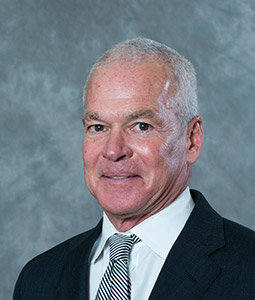Contact Us
Connect to find out how you can get involved with the center.

Gerald McDermott
Department Chair and Professor, International Business
Gerald A. McDermott, department chair and professor of international business, and
Moore School Fellow, specializes in international business and political economy with
deep experience in East Central Europe, Latin America and East Asia. He is widely
published on issues of innovation, corporate strategy and institutional change in
emerging market countries and collaborates with scholars, industry leaders and policymakers
in these regions.
Faculty Advisory Committee

Stanislav Markus
Co-Faculty Director, Folks Center for International Business
Associate Professor of International Business
Stan Markus is an Associate Professor of international business, Co-Faculty Director
for the Folks Center of International Business and a Business Partnership Foundation
Fellow at the Darla Moore School of Business. He received his Ph.D. from Harvard University
and his undergraduate degree from the University of Pennsylvania. Before joining the
Moore School, he taught at the University of Chicago. He has also spent time in visiting
capacity at Stanford GSB, Copenhagen Business School, Peking University (Guanghua
School of Management) and University of California San Diego.


Nancy Buchan
Associate Professor of International Business
In multiple countries, Nancy Buchan investigates why people are trusting, charitable
or cooperate for the common good in situations where they are individually better
off not doing so. She has also developed a tool to assess people’s communication style
across cultures, races and ethnicities, as well as business units to help people more
effectively communicate.

Andrew Spicer
Associate Professor of International Business
Andrew Spicer is an Associate Professor of international business. Spicer’s research
and teaching focus on the intersection of business and society in a global economy.
His research has examined privatization policies and outcomes in post-communist countries,
the effects of national context and identity on managers’ ethical evaluations and
behaviors, and the effectiveness of policies and strategies that aim to develop more
sustainable enterprises and business models across the world.




